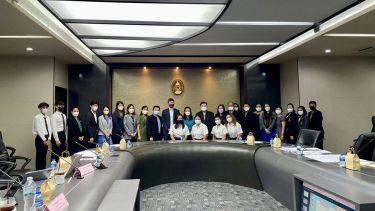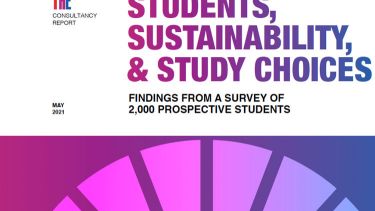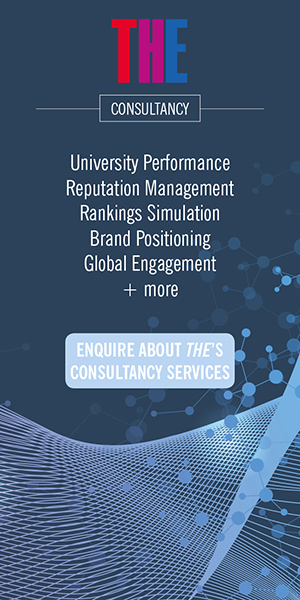
In the next in a series of student surveys, THE Consulting asked students about the importance of sustainability and how green goals can be achieved
Times Higher Education’s consultancy team has conducted the second in a series of tracker surveys focusing on the student experience, continuing from the first tracker survey about learners’ study choices, a summary of which can be accessed here.
More than 3,150 members of THE’s global student research panel of 120,000 prospective international students responded to the survey, which focused on sustainability, enabling THE Consultancy to understand their priorities on sustainability and how these affect their decisions about where to study.
Findings from the sustainability tracker survey
Of all the students who took part in the survey, 71 per cent were aware of the United Nations’ Sustainable Development Goals (SDGs). Broken down, 28 per cent of students were aware of the SDGs but had limited knowledge, 26 per cent had some knowledge and 17 per cent had a good level of knowledge about the SDGs.
This shows that the SDGs are not only significant for decision-makers within the higher education sector but also something that student bodies are cognisant of, although understanding may be somewhat limited among most students.
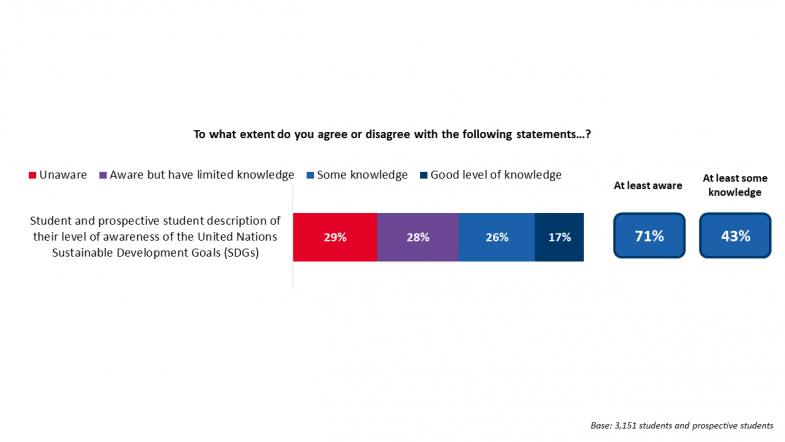
The survey also asked students about sustainable citizenship to gain a broader understanding of their opinions on sustainability. The vast majority – 82 per cent – felt that it was important for them to live their day-to-day lives in a way that is consistent with the goals of sustainability, illustrating the importance of sustainability for both current and prospective students.
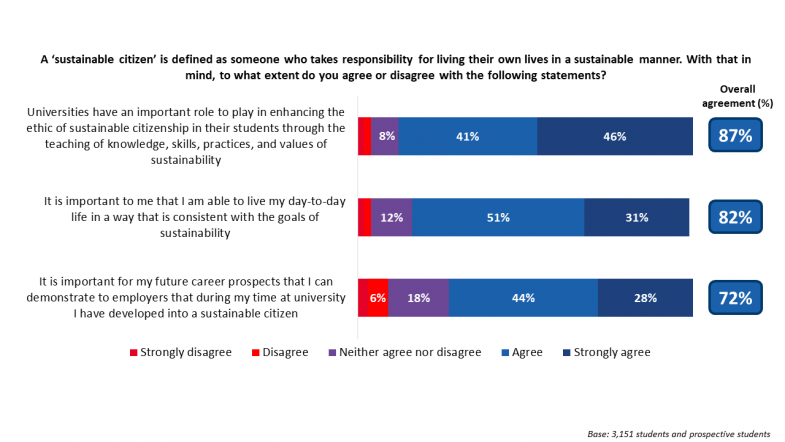
The survey aimed to gain an understanding of students’ opinions on the role of universities in contributing to sustainable development. The majority of respondents – 86 per cent – felt that universities have an important role to play in achieving the SDGs. The same proportion of students agreed that businesses have an important role to play, and a slightly larger proportion of students – 90 per cent – felt that society and governments have an important role to play in achieving the SDGs. This emphasises the importance of universities’ contributions to sustainable development as much as any other actor, both for prospective and current students.
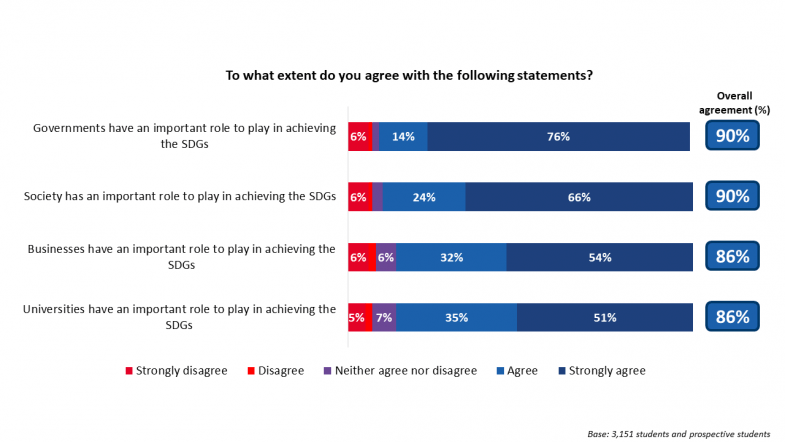
Students were asked which three SDGs are their highest priority. Students showed that they cared about all SDGs to some extent, with some given higher priority than others. From the student perspective, the highest priority SDGs proved to be SDG 4 – quality education – at 33 per cent, closely followed by SDG 13 – climate action – at 32 per cent.
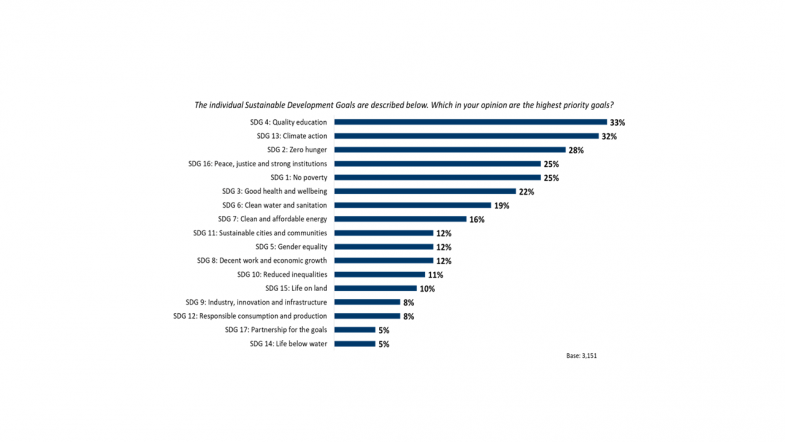
In conjunction with the survey, THE Consultancy arranged some deep, qualitative research with current and prospective students to better understand what they wanted from their universities in terms of commitments, policies and practices relating to sustainable development, focusing on SDG 13, climate action.
This qualitative work took the form of focus groups with 30 students and prospective students, organised in partnership with the United Nations Environment Programme. In these focus groups, students were asked to co-create a longlist of commitments and pledges that they would like to see from universities regarding climate action, which was then shortened to a 10-point manifesto for change through an online survey of 1,028 students and prospective students.
The actions that students wished to see from universities were wide-ranging, with an emphasis on their rapid introduction to tackle ongoing climate crisis. This included: teaching about climate change to develop the next generation of sustainably conscious citizens; producing research that addresses climate change; and playing an active role in progressing the sustainable practices of a variety of actors in society.
Overall, it was clear that students perceived universities as potential beacons of change in tackling climate change and felt that institutions should do more.
In total 3,151 students responded to the survey, with the following demographics:
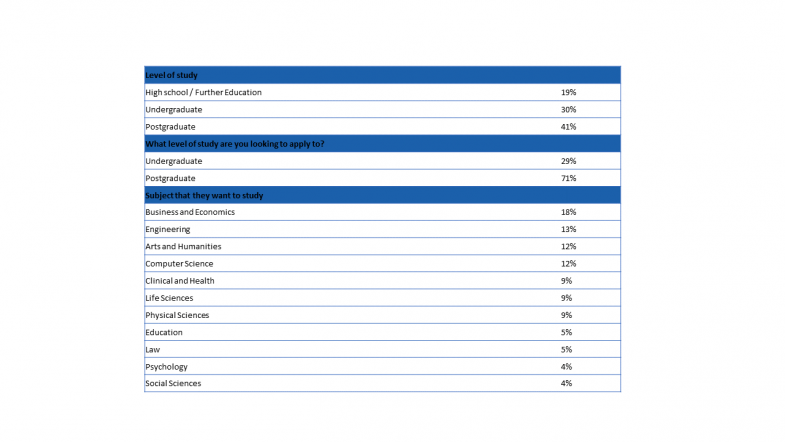
Further findings from the survey are outlined in a report, which can be found here.
Contact the THE Consultancy team for more information about how it provides strategic, data-driven guidance to universities and governments globally.







